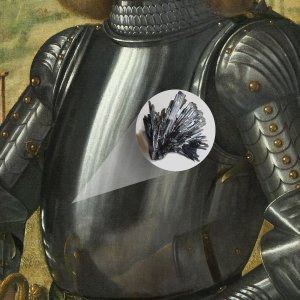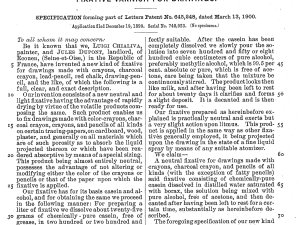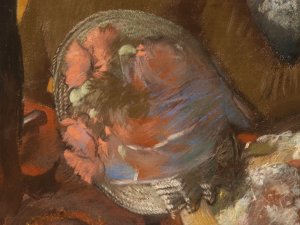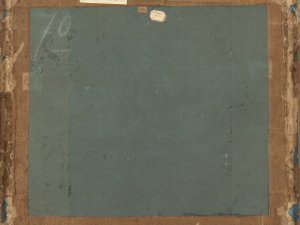
An unusual pigment

One of the curiosities revealed by the study of Carpaccio's painting is the detection of a pigment not commonly found in paint: stibnite. This pigment was normally used to make bells and metal objects. Carpaccio employed it here to capture the metallic gleam of the knight's armour, achieving a more realistic effect.
Stibnite, also known as antimonite, is a naturally occurring mineral composed of antimony (antimony sulphide) which, in pigment form, is dark grey in colour. The mineral is abundant in some areas of Italy and was also widely used in Germany, from where it was exported to Venice in the form of cakes for casting bells and other uses, such as pottery, foundries, and to make mirrors and medicinal products.



